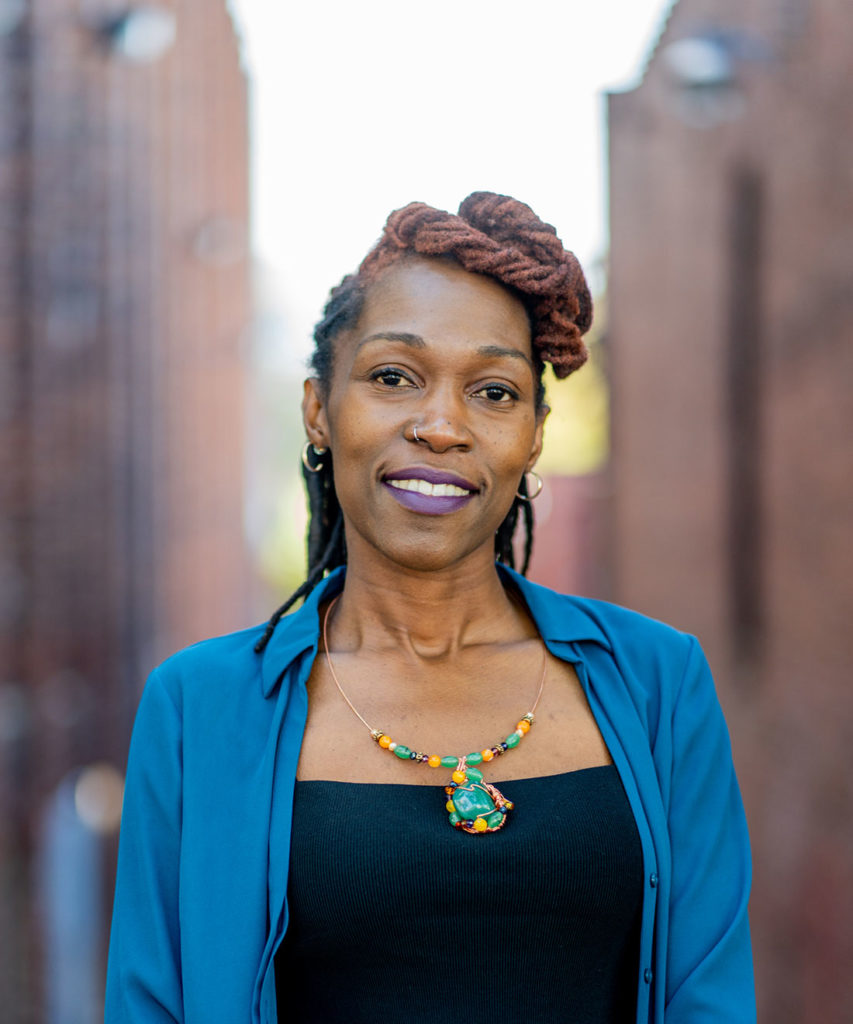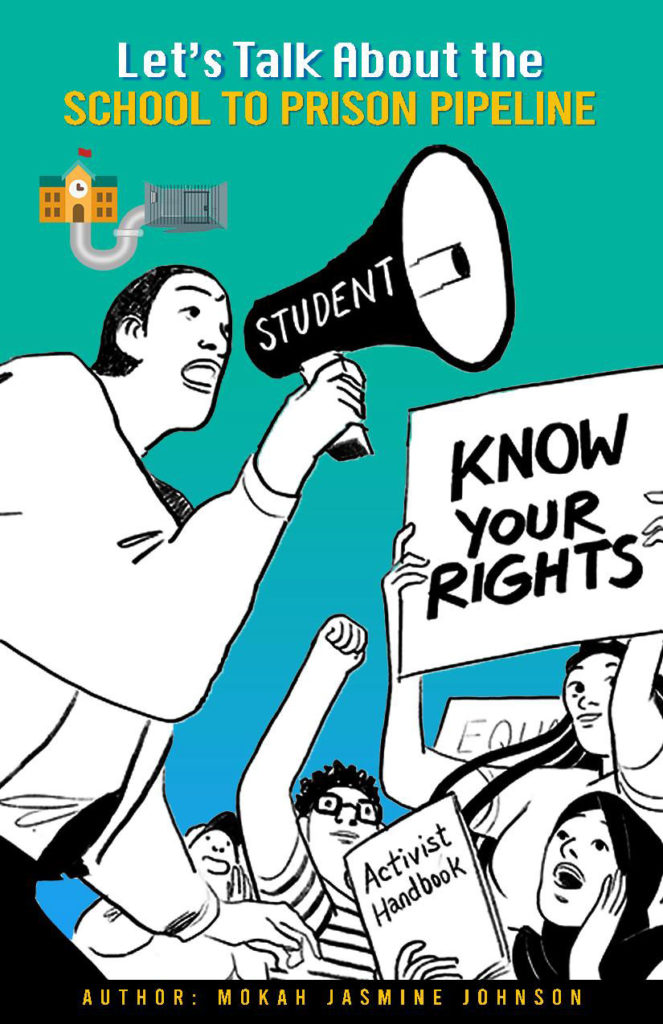Mokah-Jasmine Johnson, a former GED educator, activist and co-founder of the Athens Anti-Discrimination Movement, has witnessed firsthand the heartbreaking and detrimental effects of the school-to-prison pipeline’s punitive effects in her students’ lives and in her personal life.
To bring awareness to this complex, unsolved pattern, Johnson released her newest book, Let’s Talk About The School To Prison Pipeline. All proceeds will benefit the AADM’s Teen Social Justice Program, an afterschool program that provides students hands-on leadership opportunities.
The “school-to-prison pipeline” is defined by the ACLU as a “disturbing national trend wherein children are funneled out of public schools and into the juvenile and criminal justice systems.” The ACLU also asserts that unnecessary expulsions or suspensions make a student three times more likely to be involved with the juvenile justice system.
“The school-to-prison pipeline has been something that I’ve seen from being a GED educator,” Johnson said. “With 16- and 17-year-olds dropping out of school and coming to my class, or high school seniors who don’t have enough credits and drop out of school… I’ve seen it—it’s not something that I’ve just read about. I’ve seen how it’s impacting our community, especially young Black men.”

Data from the 2012-2016 National Household Education Survey showed that nearly 24% of Black students in elementary and middle school were suspended at least once. On the other hand, only 8% of white students were suspended.
Johnson has been mindfully crafting her book’s empowering, uplifting dialog since 2017. Illustrated by Eleanor Davis, Let’s Talk About The School To Prison Pipeline features a how-to guide so students know how to advocate for their rights.
“I tried my best to represent these young people becoming aware of their own rights and power in a truthful way,” Davis said. “With cartooning, there’s always a danger of flattening people and having the tone feel too generic. I wanted to prioritize it to make it feel like the real people I see in the community every day who are fighting to make things better.”

While the school system’s systemic racism directly impacts students and parents, it’s the lawmakers, educators and community members who must also fight for policy change. In order to create effective, tailored-to-student policies, local control is key.
“They create laws and policies that trickle down into the school systems, where the schools have to follow these guidelines and policies,” Johnson said. “If they take away local control, it’s harder for the schools to customize their policies to fit what the community would like to see or what the school would like to see. It’s a multilayer problem.”
Instead of suspensions, expulsions and even arrests, Johnson encourages utilizing restorative justice practices. Strategies like these ensure that offending children learn and grow from their mistakes, instead of allowing them to be detrimental to their future.
“I think if they are going to charge a student with something, don’t arrest them if it can be avoided,” Johnson said. “On the other hand, I know some things that call for an arrest—if there’s guns or knives being pulled… Somebody might get arrested, because somebody’s life might be in danger. There has to be a tier when it comes to the punishment system and also some investigation into the backstory so [administrators] can make more of a customizable, restorative process.”
If the school-to-prison pipeline phenomenon is not stopped at a young age, dropouts and/or incarceration can become a major issue for students. Let’s Talk About The School To Prison Pipeline’s primary purpose is to arm students with knowledge and encouragement—before it becomes too late.
Johnson plans to release a second book geared toward educators. For now, she’s reaching out to schools in Athens-Clarke County and the surrounding area to present the Let’s End The School To Prison Pipeline book tour.
“They can begin to have a conversation and understand that this problem is impacting the future generations,” Johnson said. “It’s impacting their lives in such a way that when they graduate (or don’t graduate) from high school, it becomes a community issue. You’re going to have to deal with that child that never gained the proper support that they needed and dropped out of school, or that child who was in school fighting all the time and no one knew what else to do other than expel them. It’s going to come back around.”
Like what you just read? Support Flagpole by making a donation today. Every dollar you give helps fund our ongoing mission to provide Athens with quality, independent journalism.









